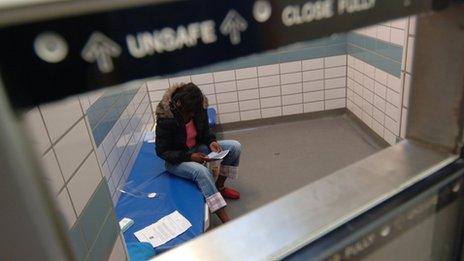Child, eight, held overnight in custody
- Published
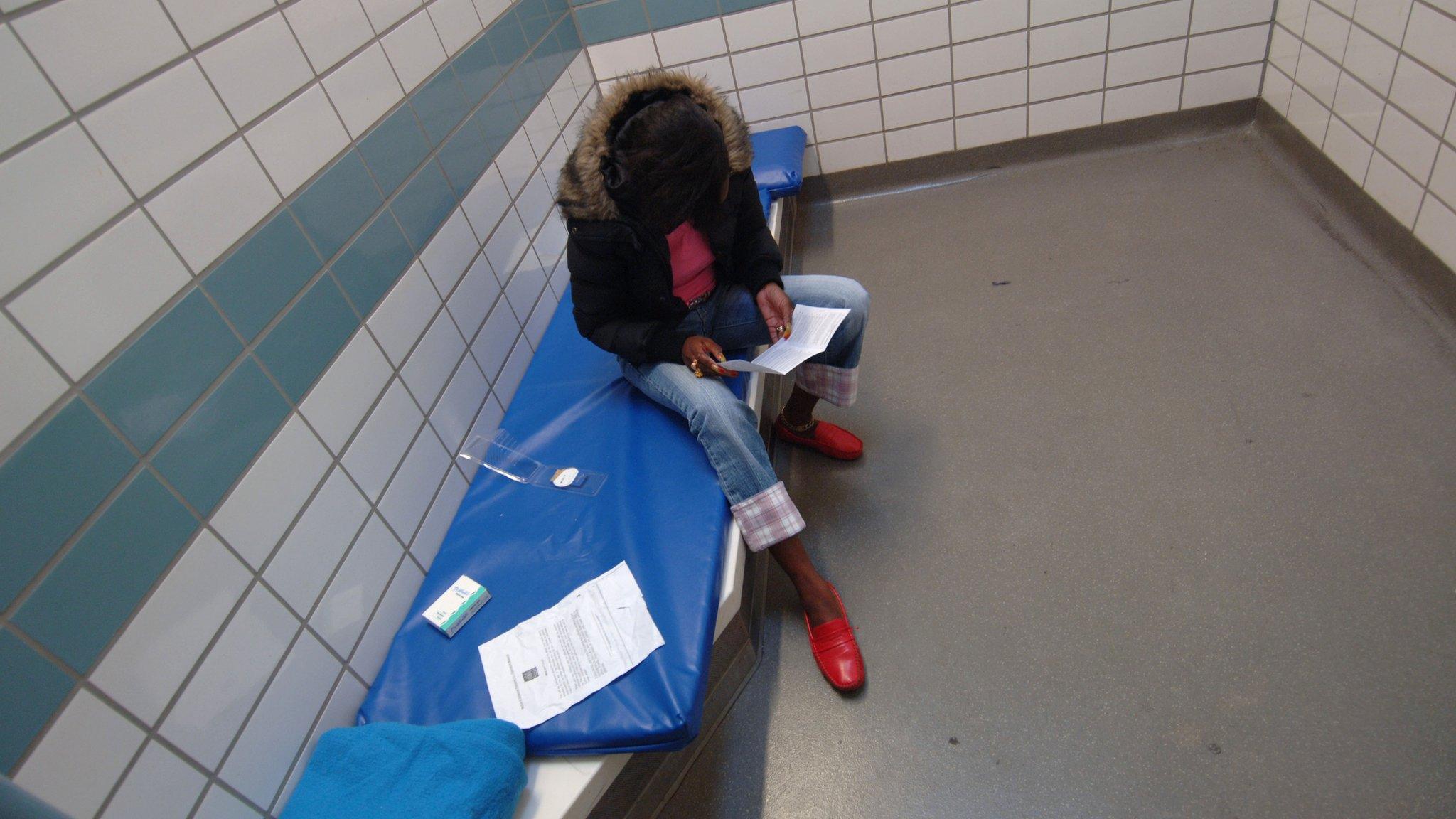
Criminal justice campaigners say authorities are breaching statutory duties by detaining under 18s
More than 22,000 children, including an eight-year-old, were held overnight in custody in 2014-15, figures show.
The 22,792 under-18s included one who was held for 15 days.
Criminal justice experts said authorities were breaching their statutory duties by detaining under 18s overnight in adult cells.
But police said there was a "lack of alternative accommodation", while local authorities said they faced difficulties in finding emergency care.
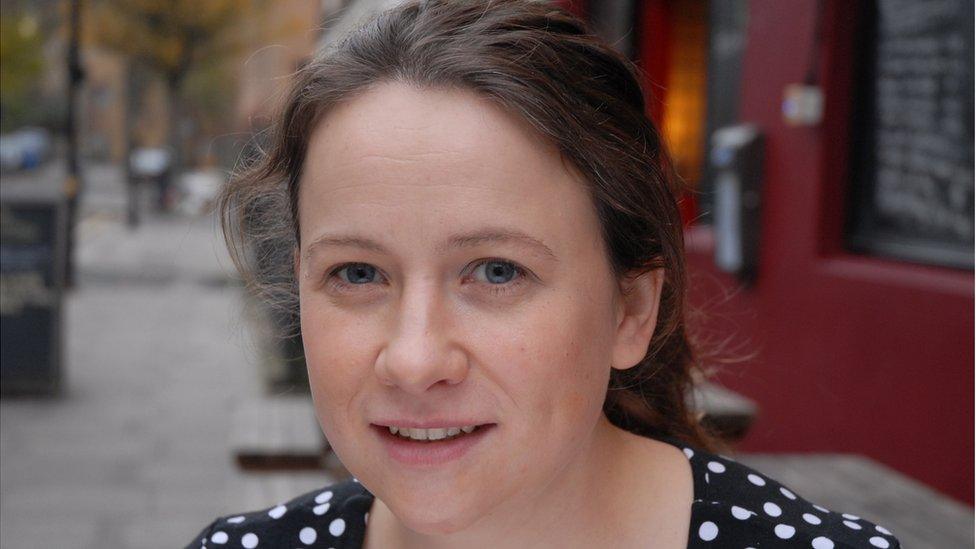
Barrister Jennifer Twite said being held overnight in a cell could have a "terrible impact" on children
The figures, which the BBC obtained through Freedom of Information (FOI) requests to England's 39 forces, showed that while the number of children detained overnight had fallen, from 41,789 in 2011-12, experts believed it was still too high.
The BBC asked forces to give figures for the number of children brought into custody between the hours of 22:00 and 06:00.
In its response to the FOI request, Gloucestershire Police said the youngest child it held was eight years old, but challenged the "overnight" definition.
"The child was detained for around two hours between 10.30pm and 12.30am which we do not constitute as being held overnight," the statement said.
The law states that, once charged, anyone under 18 should be bailed to their home or transferred to local authority accommodation unless it is impracticable, or the child needs secure accommodation and it is not available.
"In my eight years of representing children, I have never once known a child to be transferred to overnight accommodation," said Jennifer Twite, a barrister with Just For Kids, a charity that campaigns on behalf of children in the justice system.
"The number of children held overnight is shocking and unacceptable.
"Local authorities are under a legal duty to provide overnight accommodation for these children, many of whom are acutely vulnerable and in great distress."
Most forces were unable to provide information about how many under-18s were successfully transferred to council accommodation but in one force - Merseyside - just three out of 73 children were transferred in June and July 2015.
Her Majesty's Inspectorate of Constabulary (HMIC) which independently assesses police forces said custody staff at some forces - including Bedfordshire - had "never known secure accommodation to be made available for children... and had stopped requesting this facility".
HMIC said: "No police force is doing enough to work with local authorities to get secure accommodation."
Frances Crook, chief executive of the Howard League for Penal Reform, said: "The police know cells are not a nursery or a school.
"They are not an appropriate place for children to be.
"Police stations are noisy and full of adults - some of whom are drunk and dangerous.
"The cells are often subterranean and really unpleasant places."

Jamie's story
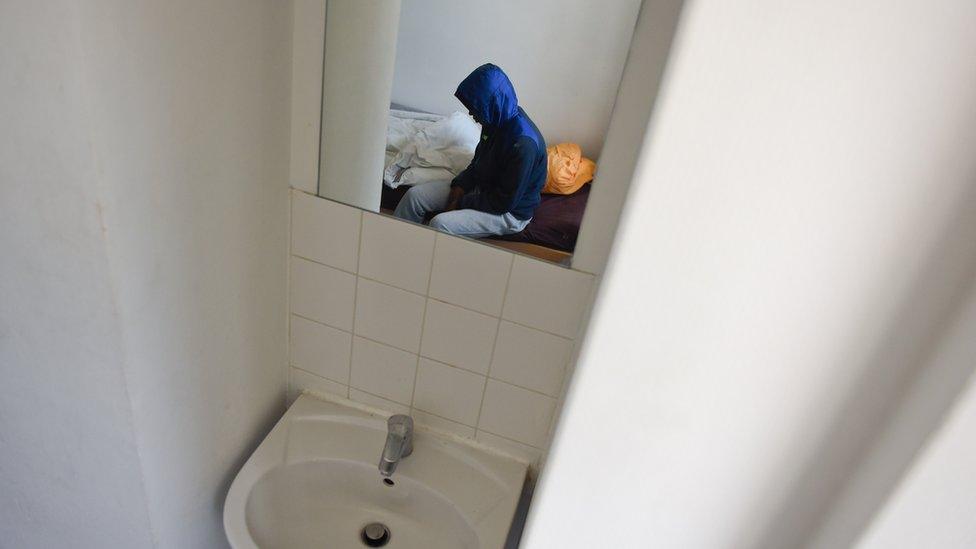
Karen says being held in a cell would have been "very distressing" for her 15-year-old son
Karen's son, 15-year-old Jamie (not his real name), was taken into police custody at about 22:00 on Sunday, following an incident involving a knife at the family home in Cornwall.
Jamie, who has Asperger's syndrome, spent the night in a cell.
The family said they and the police asked Cornwall County Council to provide emergency accommodation but were told it was not the council's responsibility.
"I can only imagine the noise and the sounds which would have been very distressing for him," Karen said.
"We feel really upset. I have no doubt in my mind he will have received excellent care from the police but it's hardly ideal."
Karen said the family had struggled with Jamie's behaviour for many years. He was diagnosed with Asperger's at the age of 11.
"There have been several severe, violent outbursts," she said.
She added: "It's not just down to the police to look after vulnerable children.
"I have no faith in social care - they are overwhelmed and the quality of their work is really poor.
"I would like to see social care teams scrapped and a new, national body with proper funding put in its place."
The county council said: "We believe it is reasonable to expect parents to fulfil the responsibilities to care for their own children.
"Cornwall also has a shortage of a carers who are willing and able to look after troubled teenagers.
"We do have some amazing carers who do this but none were available at that time."
Devon and Cornwall Police said: "Being kept in a police cell can be a very intimidating and daunting experience for a child and we try to avoid this happening where possible.
"If more suitable accommodation cannot be found, as in this case, a child has been kept overnight as a last resort."

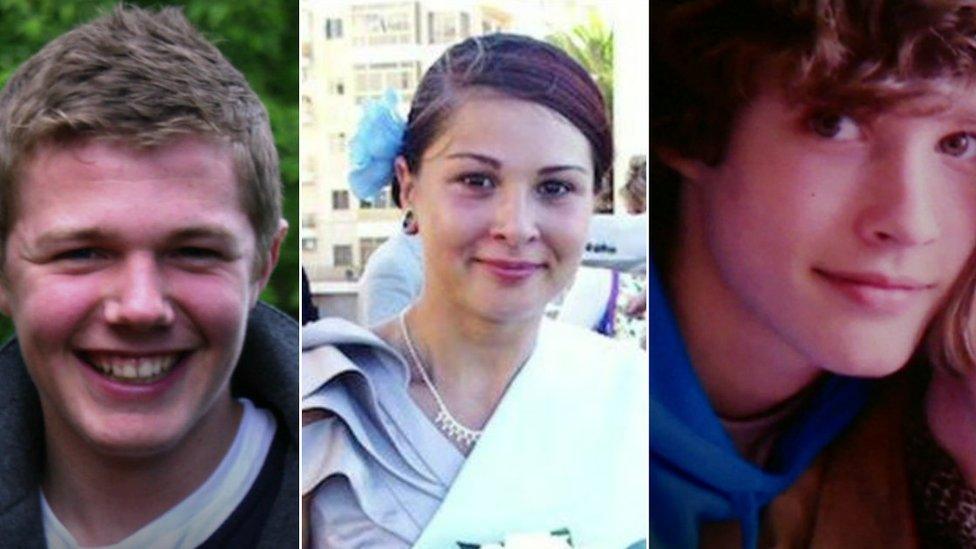
A national campaign, following the deaths of three teenagers, saw the law changed for 17-year-olds held in custody
The government said it was the responsibility of chief constables to ensure the law was complied with.
In 2015 it changed the law, following a campaign by Just for Kids and the families of three 17-year-olds - Eddie Thornber, Joe Lawton and Kesia Leatherbarrow - who killed themselves after being arrested.
Policing minister Mike Penning said 17-year-olds would be "treated like 15 and 16-year-olds, and moved to secure local authority accommodation".
He said: "The law is clear that any child who is charged with an offence should not be held overnight unless absolutely necessary.
"This government is doing more to protect children and vulnerable individuals who often end up in police custody due to the lack of suitable accommodation."
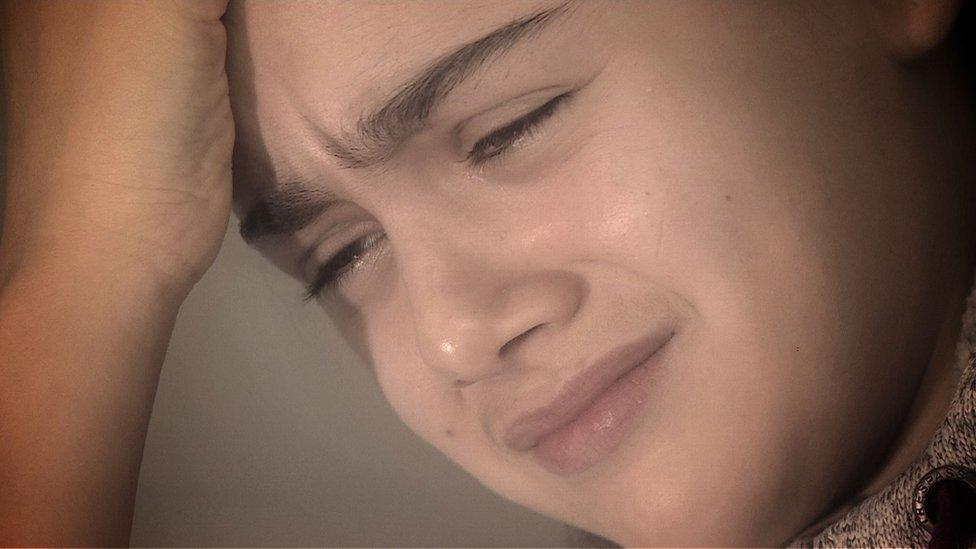
Experts say many young people see their detention as a punishment - which can be very damaging
Yet experts agree this is not happening rapidly enough.
Dr Vicky Kemp, principal research fellow at the University of Nottingham's School of Law, has specialised in studying children in the justice system.
"Kids are being held for longer and longer because the police are strapped for resources," she said. "You are getting 14-year-olds held in cells for hours and it's not good enough.
"The system can be very damaging for adolescents."
The National Police Chiefs' Council lead for children and young people, Deputy Chief Constable Olivia Pinkney, said: "Entering custody can be a traumatic experience.
"One factor in longer stays is the lack of alternative accommodation."
Roy Perry, who chairs the Local Government Association's children and young people board, said: "Young people should never have to spend the night in a police cell unnecessarily.
"However, we know there will be times when there is no other option available."
Update 2 February 2016: This report has been updated to include further information from Gloucestershire Police.
- Published9 July 2015
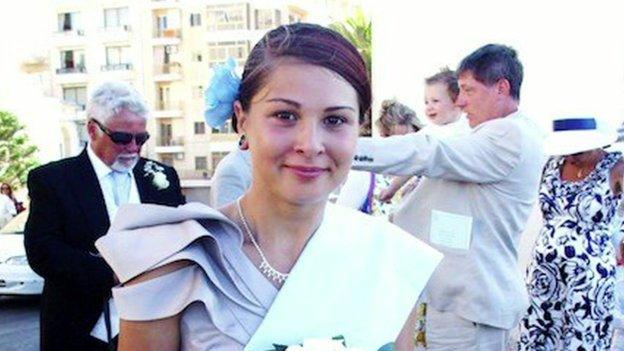
- Published28 March 2013
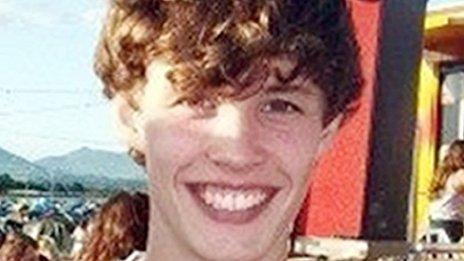
- Published8 March 2013

- Published14 January 2014
